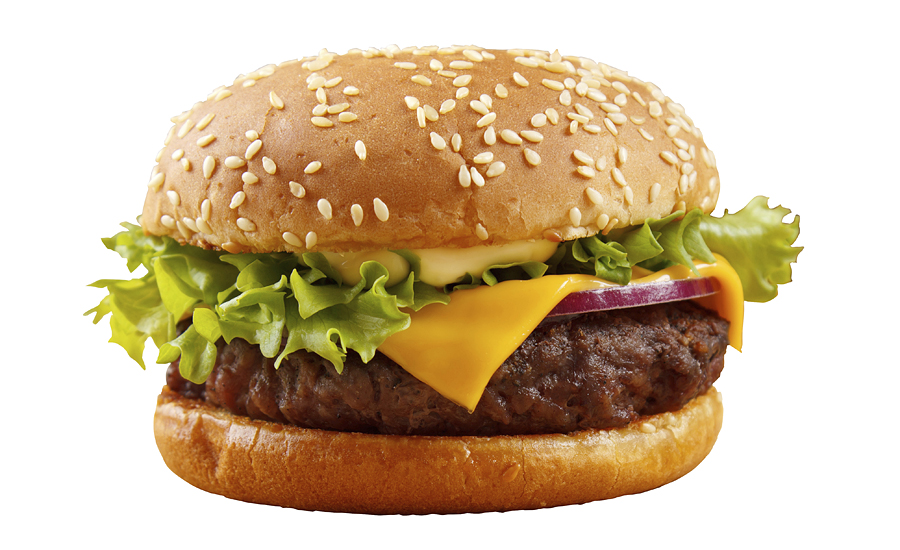Burgers are possibly the most ubiquitous meal on Americans’ dinner plates, but they’re also among the most resource-intensive. That’s because according to research conducted by World Resources Institute (WRI), Washington, D.C., beef accounts for nearly half of the land use and greenhouse gas emissions associated with the food Americans eat. In fact, a beef-mushroom blend that maintains, or even enhances, that meaty flavor offers a significantly less environmental impact.
Americans eat approximately 10 billion burgers a year, according to a study conducted by the Angus Foundation, St. Joseph, Mo. Replacing 30% of the beef in those burgers with mushrooms would:
- Reduce agricultural production-related greenhouse gas emissions by 10.5 million tons of carbon dioxide equivalent (CO2e) per year, equivalent to taking 2.3 million cars (and their annual tailpipe emissions) off the road.
- Reduce irrigation water demand by 83 billion gallons per year, an amount equal to 2.6 million Americans’ annual home water use.
- Reduce global agricultural land demand by more than 14,000 square miles.
Tastes great, less impact
The Culinary Institute of America, New York, and others recommend blending plant-based foods into meat-based dishes as one way to shift mainstream consumers’ diets without requiring lifestyle changes. Beef-mushroom burgers can also be lower in calories and saturated fat than all-beef burgers.
Good for business
Blended burgers represent a sustainability opportunity for restaurants and foodservice operators, as beef accounts for a sizable portion of these companies’ greenhouse gas emissions. Agricultural supply chains tend to account for 90% or more of a food company’s total water footprint—and beef production is a particularly thirsty user of water, requiring more irrigation water per pound of product than any other animal-based food. With companies increasingly setting science-based greenhouse gas emissions reduction and water stewardship targets, the blended burger is a sustainability strategy that could sit alongside renewable energy, energy efficiency, water efficiency and waste reduction measures to make progress toward ambitious environmental goals.
Furthermore, the beef-mushroom blended burger appears to not increase costs for foodservice operators. A 2014-15 trial in a Baltimore public school suggested that the blended burger could be at least cost-neutral compared to traditional beef burgers. Over time, if meat producers and distributors sell pre-prepared blended burgers, economies of scale could make the blended burger an even more attractive business proposition to foodservice.



